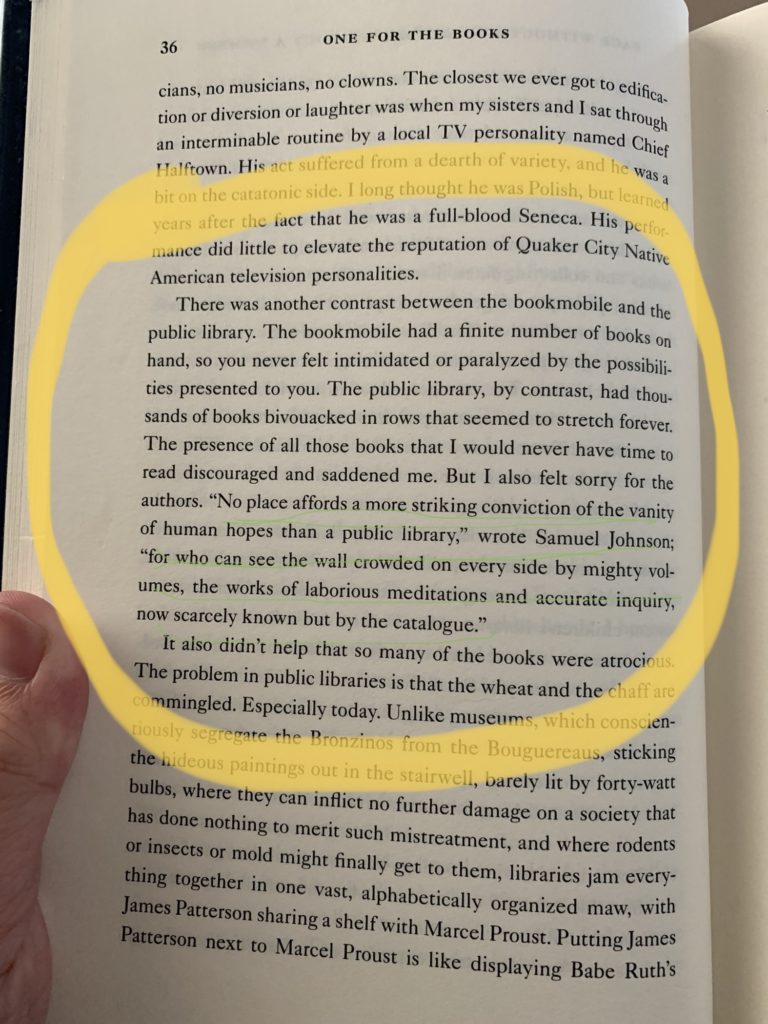It’s been a while since I looked back on books I’ve read, but I had a little spare time, so…
The climate swerve: reflections on mind, hope, and survival by Robert Jay Lifton: A short book that ties the environmental movement to the anti-nuclear movement. Lifton makes the point that the anti-nuke movement is a useful model, because, like the climate crisis, it involves an existential crisis.
She who waits by Daniel Polansky: In this urban, noir, fantasy novel, "She Who Waits" is the goddess of death. The final in a trilogy of books, this one gets pretty dark. It’s a solid noir story though, if you’re into that kind of thing.
On fragile waves by E. Lily Yu: The story of an Afghani family illegally emigrating to Australia and applying for refugee status. Humanizing and powerfully tragic.
No gods, no monsters by Cadwell Turnbull: I don’t have strong memories about this one. The premise: how would people collectively react if monsters were proven to be real? Turns out, they wouldn’t do much. Some interesting ideas in here, but it didn’t really stick with me.
A deadly education and The last graduate by Naomi Novik: What if there was a school of magic, but it tried to kill its students? This is a fun spin on the Harry Potter thing.
The builders by Daniel Polansky: A group of bandits seek revenge. Only they’re all animals. Pretty great short little yarn.
The shortest history of China by Linda Jaivin: I realized I didn’t have a great sense of the grand arcs of Chinese history. This one filled in that gap. Extremely readable, but very light.
Gentlemen and players by Joanne Harris: A satisfying whodunnit. I mostly had no idea what was going to happen until the very, very end.
Everything we miss by Luke Pearson: I had completely forgotten about this one. It’s a comic about how things like depression can blind us to the world around us. Short, but powerful. (Unfortunately, for me, not very memorable.)
Just one damned thing after another by Jodi Taylor: The first in a long series of time travel novels. Pretty entertaining, but I feel like I got what I needed out of the first one. Probably won’t read more of them.
Real tigers by Mick Herron: A group of washed out British spies. This one is #3 in the series, I think? Pretty great. The books in these series are pretty interchangeable. If you like one, you’ll probably like the others.
Hero of two worlds: the Marquis de Lafayette and the Age of Revolution by Mike Duncan: The story of how Lafayette played a crucial role in both the American and French revolutions. Fascinating stuff!
Ready Player Two by Ernest Cline: I could see Cline struggling to address the problems and issues raised by the first book. He somewhat succeeded in exploring the problems with having absolute power. Interesting, but extremely light.
Living in data: a citizen’s guide to a better information future by Jer Thorp: A poetical meditation on the data milieu we’re all swimming through. Extremely worthwhile.
The dangers of smoking in bed by Mariana Enríquez: A powerful set of short stories. Very much in the vein of magical realism a la Gabriel García Márquez.
Everything now: lessons from the city-state of Los Angeles by Rosecrans Baldwin: A love letter to LA. I’d never want to move to LA, but this book helped me understand why people want to.
Subcutanean 36619 by Aaron A. Reed: An interesting experiment in procedurally generated novel writing. A story about parallel universes. If you order a copy from the author, it will be a little bit different from other copies.
The Witchwood Crown by Tad Williams: I loved the Memory, Sorry, and Thorn trilogy. This is a follow up trilogy. A meditation on middle age, legacy, and the folly of youth. I’ll definitely read the rest.
Continuous discovery habits: discover products that create customer value and business value by Teresa Torres: A book I read for work. Some useful insights here.
Children of the fang and other genealogies by John Langan: Horror short stories. Some pretty chilling stuff.
The Rift by Nina Allan: A girl’s older sister disappears without a trace and then apparently reappears decades later. Powerful stuff.
Into the wild by Erin Hunter: The first of the Warriors series. I read this because my kid is super into this series and I wanted to see what it was all about. I can see why these are appealing and we had a great chat about it, after.
The invisible life of Addie Larue by VE Schwab: A woman is cursed by the devil to live forever and never be remembered. Compelling reading. I enjoyed it a lot.
All systems red by Martha Wells: The first of the Murderbot stories. I see why people have been raving about these books.
LaserWriter II by Tamara Shopsin: The story of an Apple repair shop in NYC in the 90s. Extremely charming. Captures a moment in time that’s long gone.
The lathe of heaven by Ursula K. Le Guin: A psychiatrist hypnotizes a man into altering reality. The protagonist is a true Taoist hero. Mesmerizing and deeply weird.
The Rosewater insurrection by Tade Thompson: Science fiction centered in Nigeria instead of, as per usual, the United States. This is a sequel in the Wormwood trilogy.
House of chains by Steven Erikson: Book 4 in the Malayan series. This was a reread. The best I’ve read so far in epic fantasy.
